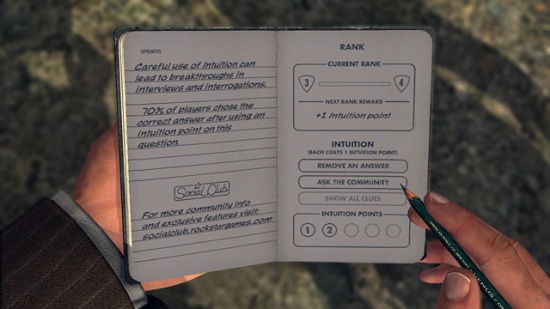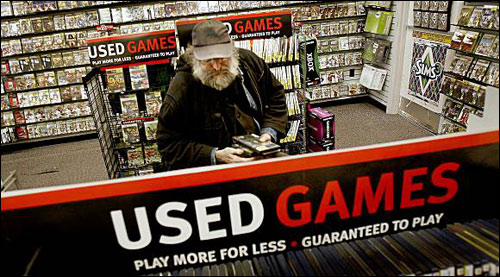Last updated on March 4, 2013
He who withholds his rod hates his son, But he who loves him disciplines him diligently.
-Proverbs 13:24
Watching the Men’s Gymnastics during the Olympics is always a heartbreaking proposition. One moment you’ve bought into the hype that, yes, we can win a Olympic Gold Medal in this treacherous field; the next moment, you realize I don’t use the word “treacherous” lightly. However, what strikes me the most is the psychological disposition of the United States Olympic Team. The first mistake was like a snowball rolled down a wintery mountain, gaining momentum and crushing everything in its path. Once Danell Leyva “fell” off that pommel horse, it was all over; Orazco decided he wanted to fail big as well, and the United States rolled into a fifth place finish. All the crying and “it’s OKs” in the world can’t convince these athletes to man up and do their best (sexist, but true).
Where’s that will to win? What happened to that “to hell with the odds” spirit that gives us such great underdog stories at the Olympics? The U.S. men fail again and again, yet the Chinese and Japanese guys grip onto those apparati with all of their might to not fall off; we just slide right off and say it’s fine. You ache so badly for them to do well, and they fail you. I think I’m beginning to see how Red Sox Nation feels (heck, I even live in New England; I see it).
Honestly, where did our backbones go?
The Steam Summer Sale has given me the opportunity to play a great number of “modern” games. Having fallen behind during my academic work, I figured I should check in at some point to see how trends have gone. Unfortunately, most of them have been found wanting from this old fogey (yes, 24 years old is pretty old when it comes to the video game medium).
Demon’s Souls, to its own benefits, avoids these pitfalls by providing an open-ended, challenging, and strategic style that grips you and never lets up. By earning your own way, tooth and nail, to every objective, you inevitably appreciate the work that goes into every victory, allowing you to savor the final conquest when it arises. I am hoping not to make a sweeping generaliztion, but Japanese video games still have this impulse at heart. The removal of difficulty, arbitrary or not, hasn’t changed the basic design of the Japanese gaming style – it’s always required the use of the game’s mechanics to make progression, even if the challenges presented don’t take long to hurdle.
Most modern games, on the other hand, explicitly notify the player of every obstacles and every mechanic. Some games, like L. A. Noire, even have the audacity to drop huge hints in a game where discovery drives the entire narrative! Why give the player hints (just about every game made now), or allow them to skip portions of the game (L. A. Noire), or even play the game for them (New Super Mario Bros.)?
There’s a simple explanation, and it has everything to do with advertising. What’s that? Marketing jargon? Here me out; there’s a deeper root to the use of advertising in American culture.
How does advertisting work? Think of any commercial over the past who-knows-how many years, and there’s one essential factor in all of them: they’re trying to sell you a product. Whether beer, or cars, or life insurance, or convincing you of the benefits of voting for one candidate over the other, all advertising seeks to convince the audience that they need product X, or they should support cause Y. Everyone wants something from you, whether to help a cause or just out of natural self-interest.
Furthermore, many commercials appeal to our collective vanity. Don’t you want to be cool? Buy a BMW. Don’t you think this commercial is funny? Well, Budweiser will help you be just as funny! Advertising, in that sense, is the single most effective self-help programs in the entire world – except that, from its very inception, the commerical was designed to sell a particular product to you. You aren’t the special recipient of that information; how many other people are watching the Olympics right now? Do they all need a Chevrolet truck? Not really! But the commercial makes you feel as if you should buy it because…well, that’s the whole point.
Video games, then, have evolved into giant advertisements to the player as he plows through content in a minimal timeframe. Modern games allow any player at any skill level to complete the game; no matter how far you fall, you can always get back up even if you learned absolutely nothing from your mistakes! You’re the invincible hero of a power fantasy in most cases. You can take so many bullets, or get hit so many times, or even dies, but you can easily restart mere seconds from the time you last mistake took its toll. The player becomes none-the-wiser of how he/she could improve their game, scale the obstacles themselves, or learn how the game is meant to be played. Instead, the developer’s worldview reinforces how important YOU, the player, are. You’re so awesome that you expend little to no effort in accomplishing the goals of the game.
Doesn’t that make you feel hollow inside? Sure, a string of temporary pleasures can satisfy for the moment, but do they bring continual enjoyment? How many games have you seen at the used game racks in Gamestop? Hundreds? Thousands? Tons of single-player games lined up in a row with no one to play them. Instead of wrestling with challenge, we eagerly await the “next big thing” without Gears of War or Halo being so much as a speed bump. Even games that provides a dedicated challenge to the few willing to brave their content are passed over in lieu of the next experience for most; a game is “too hard”, and one gives up without nary a mention of our skill. After all, aren’t games supposed to be “enjoyable”?
Video gamers have become mass-market consumers. They’ve absorbed the advertising mentalities, all the while attesting to their own integrating by useless platitudes like “different strokes for different folks”. This isn’t how video games works. For all intents and purposes, every memorable video game incorporates some kind of challenge, whether it be the mystery of a new world, the split-second timing required to dodge attacks, or a grand tactical mindset in a turn-based strategy game. How many arcade games forced the mentality of “play to win” on all who entered? Sure, the arbitrary difficulty worked as an effective business model, but players worked around these limitations by becoming better at the games in question. Playing fighting game matches for days on end made the timing for special moves and punishing opponents much easier than it would be otherwise. A shmup player would begin to memorize stage layouts to top the highest score.
Up until a decade and a half ago, home consoles developers looked to the arcades and PC adventures for their inspiration; in doing so, they crafted a precedent of challenge that made experiences like Super Mario Bros., The Legend of Zelda, and Mega Man extremely memorable. American games represented this same punishing difficulty; take the myriad PC roguelikes and their ilk to see what I mean. Earning victory made sense; developers punished you for your mistakes, but always in a way that achieving victory was in reach if you had the will and dedication. The feeling of elation was unbelievable when you were the winner. Discipline was key to the experience; if the developers didn’t force your hand, why should they expect you to spend any time at all with their game? If it offered a fair challenge, we’d play it; if not, we’d play it anyway just because conquering a game always made for good times. That is the core of video games – some kind of challenge, difficulty, or obstacles to overcome. If the “obstacles” fail to be obstacles, then the game defeats itself – I don’t pay 59.99 to have a game play itself.
Now, it’s just a stock experience in a host of similar experiences – developers wants your money, not your time. We’re a host of spoiled video gamers, and we’re all the worse for it. Life reveals this problem as much as fiction; our video games reflect our cultural disposition. Is it OK to lose? Apparently so!
I say, no. I wasn’t taught to be a loser, and I certainly wasn’t taught to “do your best…only”. I can ALWAYS do better at something. Take this blog; I didn’t think I could write a single entry every day, but here we are! I didn’t think I could combine video games and theology, but by God’s grace I’ve had more inspiration in the past two months than I have in a long time. What a perversion of our natural talents and gifts to waste them on self-entitlement and giving in to social/competitve pressure when everyone needs you to pull through. What if it was for Jesus Christ? Shouldn’t it always be an expression of your best effort, and maybe a little beyond? Failure is an opportunity to learn and progress, not to stew and disappoint further.
Spare the rod and spoil the child – more relevant than I’m sure Americans would like to admit right about now.


